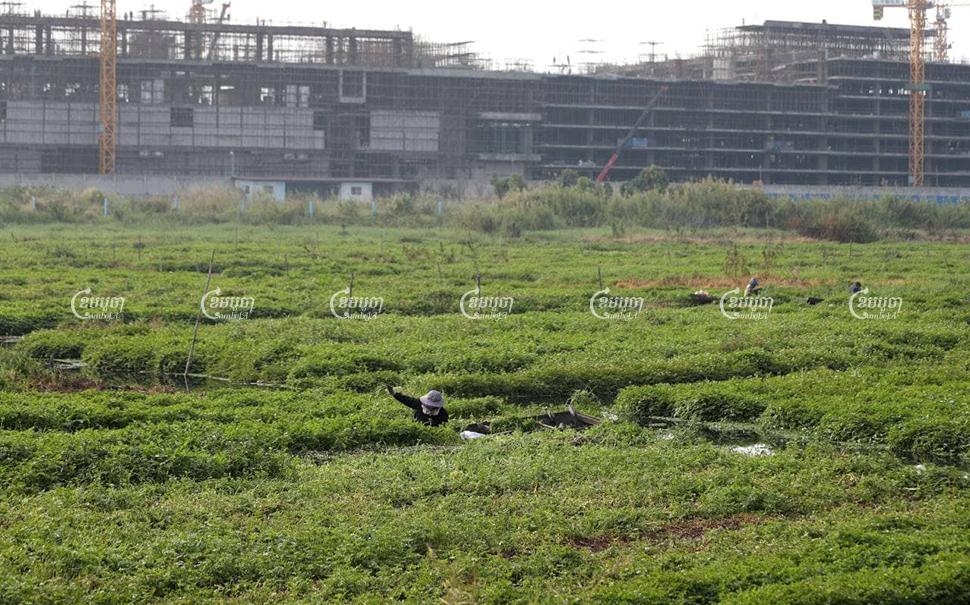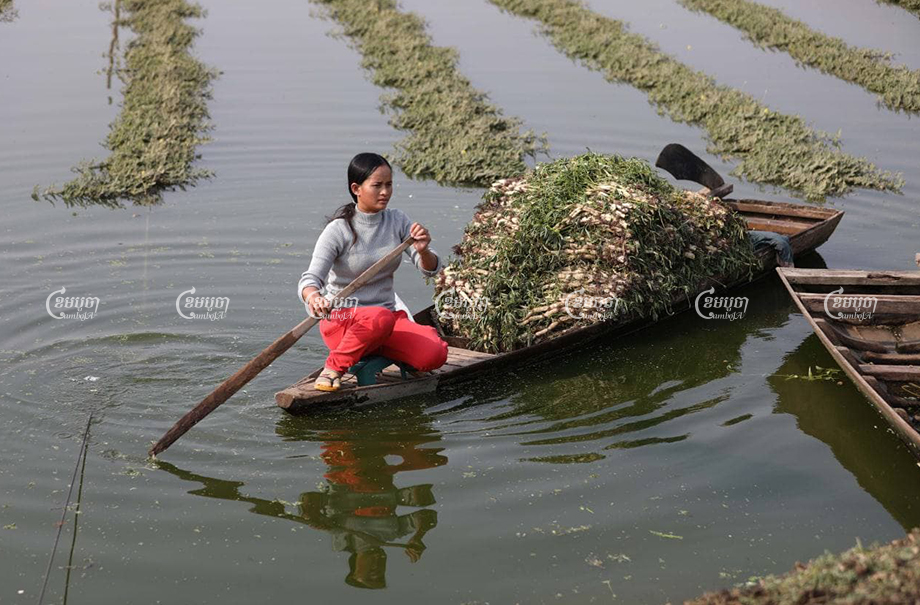Seven United Nations human rights rapporteurs raised serious concerns over the impacts of in-filling of Boeung Tompoun and the Cheung Ek wetlands to make way for a mega-development project, to which the government said environmental risks had been mitigated and touted its economic benefit.
The rapporteurs expressed their concern in a joint letter sent to the government in December, after which the government sent two responses rejecting any concerns raised by the rights experts.
The ING development was allotted in 2004 and spans the lake and wetlands in southern Phnom Penh. Around 70 percent of the city’s waste and rainwater escape into the wetlands, leading to concerns among rights groups over the filling of the waterbody.
The UN experts said that the project would affect the livelihoods and wellbeing of around 1,000 families who live in and around the water bodies.
“Allegedly, not only does the project threaten the livelihoods and homes of these families, but it will also cause irreparable damage to the wetlands ecosystem,” the letter read.
The letter said the development would put one million people, nearly half of the capital’s population, at risk of flooding and pollute the Mekong and Bassac rivers with untreated sewage and wastewater.
The development license is held by ING Holdings Company, which is owned by former Senator Ing Bun Hoaw. The satellite city project has completed a large amount of the filling, and more recently completed the Hun Sen Boulevard and has leased plots to companies and groups, such as the International School of Phnom Penh, Urban Village, R & F Group, Chip Mong Group, and Borey Peng Huoth, Maritime Group and Aeon Mall.
In consultation with the Ministry of Environment and the Phnom Penh municipal administration, Cambodia’s Permanent Mission to the United Nations in Geneva sent two letters to the UN experts rejecting their claims and concerns.
The letters said that ING Holdings has led the rigorous study of relevant data and site assessment, in collaboration with the Phnom Penh and Kandal governments, to ensure appropriate planning and land use. Comprehensive assessments of the environmental and social impacts had been conducted since 2008, the letters reported.
The letters also focused on the economic benefits from the mega project, also listing the lack of income the government would receive had it not sanctioned the project.

The Cambodian government said the project would bring in more than $4 billion in national economic revenue over the next 20 years. This was calculated by estimating growth in property prices, property taxes, business tax, and construction of physical infrastructure as well as direct and indirect job creation for many people, among others.
“If not developed, the entire lake will function only to purify the liquid waste from Phnom Penh in a natural way that could affect the environment in the future,” the letters read.
The letters claimed that there were provisions for public buildings and that the project would generate more than 100,000 jobs during the initial phases, which would ramp up to 11 million jobs from 2015 to 2035.
The UN experts findings are similar to conclusions drawn by four local rights groups, led by land rights NGO Sahmakum Teang Tnaut, who said the continued destruction of the critical wetlands would have devastating environmental impacts and the development was at the cost of human rights.
Am Sam Ath, deputy director of local rights group Licadho, said the in-filling was already causing flooding in the capital.
“Before we had those lakes as a reservoir to store water from rain and now we have already seen during the rainy season, the city was flooded because we don’t have a sewage system yet,” he said.
Sam Ath said both the government and the UN experts should jointly study the impacts of the project to ensure sustainable development and that the environment and human rights were kept front and center.
“We have never seen any research reports or environmental impact assessments (EIA) from the government, that is why we are always voicing concerns over huge development projects,” he said.
Tep Phalla lives in Phnom Penh’s Chak Angre Kraom commune and grows morning glory in the Cheung Ek wetlands. He said as the wetlands and lake have grown smaller, due to the in-filling, the water has turned murky and it has gotten harder to get a good harvest.
“I feel very sorry that the lake is being filled but we can’t do anything. We can’t ban them to stop filling,” Phalla said.
He added that if his yields continued to drop he would have to resort to finding some other kind of work – the first time he would have not farmed the wetlands since 1993.
“I don’t know what I am going to do when it is completely filled,” he said. “I may have to go work as a construction worker or motorcycle taxi driver.”








